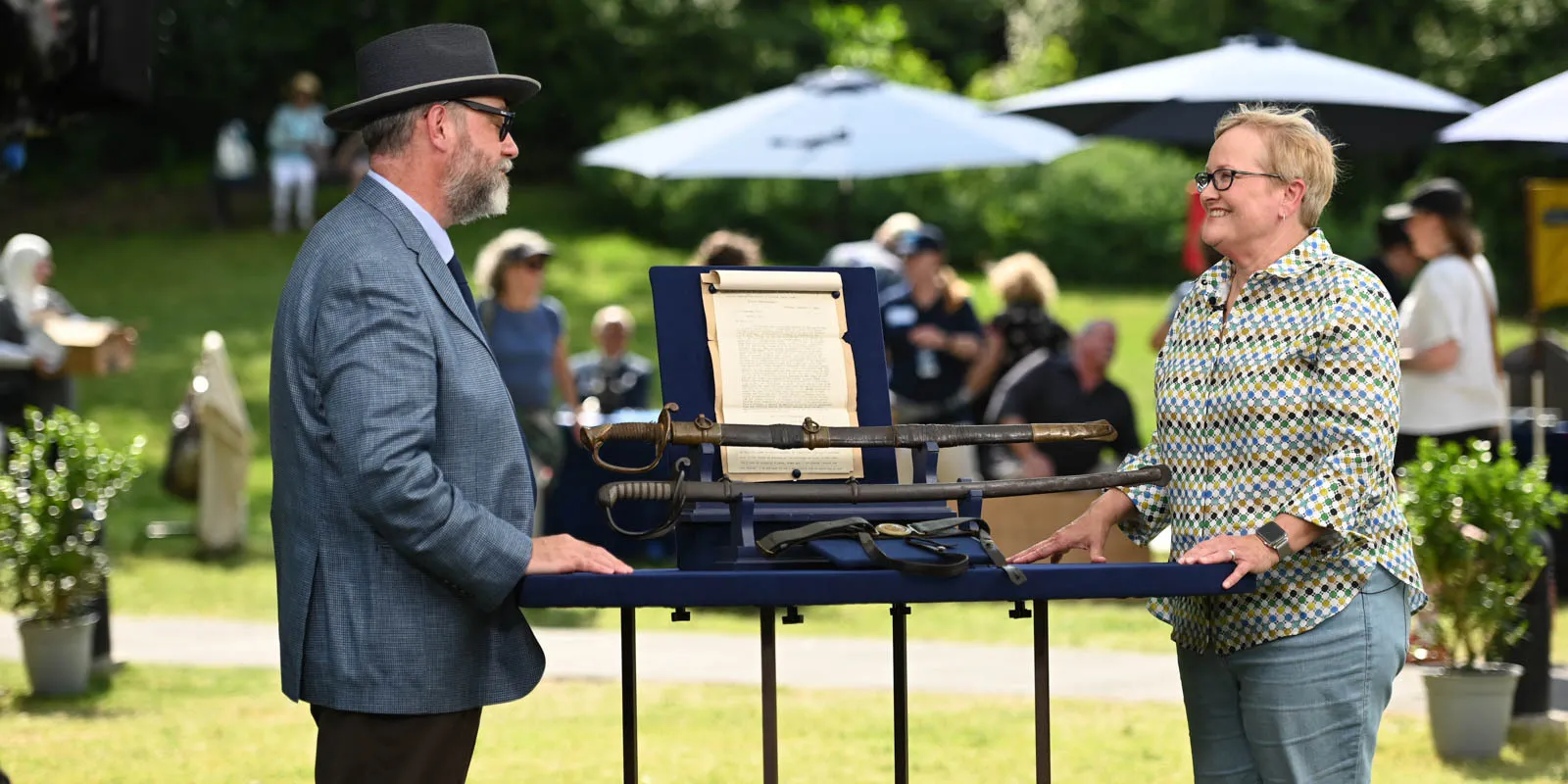Read a Letter Written by a Union Captive to a Confederate Soldier
An unlikely friendship between a Confederate officer and a Union captive during the Civil War yields an act of kindness, and in response — an incredible letter, which was brought to ROADSHOW in the spring of 2023.

Apr 22, 2024
During ANTIQUES ROADSHOW's May 2023 visit to the North Carolina Museum of Art in Raleigh, North Carolina, an extraordinary Civil War archive came to light through Annie, a guest with a deeply personal connection to the artifacts. Among the archive’s treasures was both a sword and a letter that preserves a remarkable tale of shared humanity.
Annie told Arms & Militaria expert Jeff Shrader about her great-grandfather, P. J. Johnson, whom the sword and letter belonged to. Johnson was a captain for the Confederacy during the Civil War who captured J. E. Buckbee, a Union captain from Michigan, during the Battle of Petersburg in Virginia. The Battle of Petersburg, which took place between June 15 and June 18, 1864, was instigated by Union General Ulysses S. Grant to seize control of the city — a major communication and supply hub used by the Confederacy. Isolating Petersburg would be a significant blow to the Confederate forces. General Robert E. Lee’s army was able to hold off Union soldiers, however, which led to the nine month long Siege of Petersburg which lasted from June 9, 1864 — March 25, 1865.
That night, Johnson had been nursing a wound received in the heat of battle. Buckbee, despite being Johnson’s captive, offered aid. Similarly, when Buckbee requested to bathe in the river, Johnson acquiesced. These simple acts of kindness, amidst the chaos of war, ultimately reunited the two men decades later.
After the war, Johnson wrote to Buckbee through the Detroit Free Press, hoping to return his former opponent’s sword, which he had captured after the battle. Many years later, Buckbee wrote back, recalling their unexpected wartime encounter:
"If I am not mistaken, you had a slight wound across the back of your hand and I turned some water over it to cool it off. Am I right? You say you have my sword. Friend Johnson, keep it. If you have boys, let it go to them as a trophy captured in a fair fight."
While Shrader gave the archive an insurance value of $20,000-$25,000, the profound story it tells — a story of compassion and humanity — is priceless.
Read the full letter below:
Letter written by Union soldier J.B. Buckbee to Confederate captain P.J. Johnson
“A War Reminiscence.”
Chicago, November 6, 1888.
P. J. Johnson, Esq.,
Lenoir, N.C.
My dear Sir,
I hardly know how to express myself in writing to you. It is certainly a strange circumstance in a man's life to go through war and in later years, write, with only the kindest of feelings, or more with a feeling of kinship, to the man to whom, during the war, you surrendered as a prisoner of war. I use the word kinship in a broad sense, for are not all Americans in a certain sense akin? I have had sent to me a clipping from the Detroit "Free Press" in which your communication was published, asking if I am still living, etc. I remember you and your courteous treatment the night of the 17th of June 1864. If I am not mistaken, you had a slight wound across the back of your hand, and I turned some water over it to cool it off. Am I right? You say you have my sword. Friend Johnson, keep it. If you have boys, let it go to them as a trophy captured in a fair fight. I'm teaching my boys to respect Southern men who fought for their convictions; that I then thought I believed (what time has since proved) that the cause for which I fought represented the best interest of the whole country. They, on their part, were as honest in their convictions as I in mine. And more! I tell them that it is my belief that having trusted to the issue of war, you of the South have accepted the result in good faith and would to-day be as quick to rescind an insult to our Father's flag. Am I not right in this? If you can so teach your boys, when the next war comes, your boys and my boys will stand shoulder to shoulder against enemies of our common country. I should be glad to hear from you. You certainly had a very taking way with you when last we met, and I presume you are still as companionable. I escaped after five months in prison and served through the balance of the war without again falling into trouble of a serious nature. I am married and have a family. I should be pleased to become better acquainted than was possible during the brief evening while we were together, and should you come this way, do not fail to call on me. I enclose my business card. Yours very respectfully,
J. B. Buckbee




